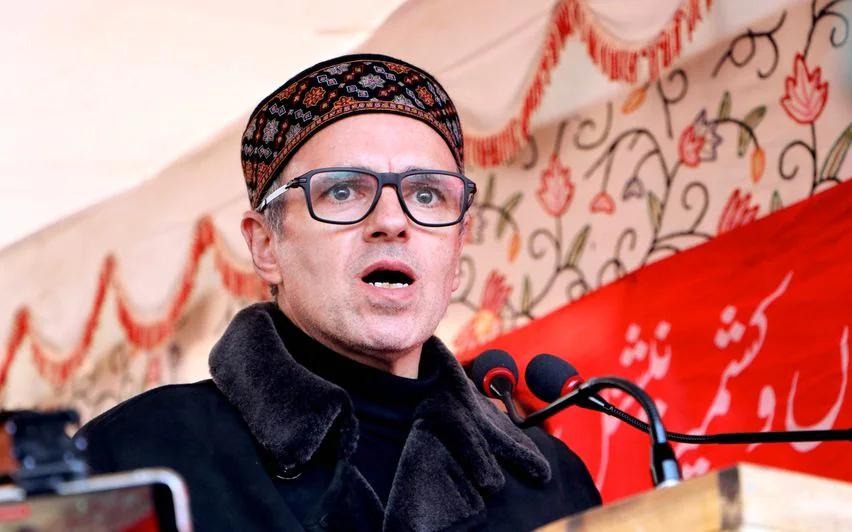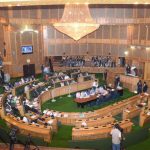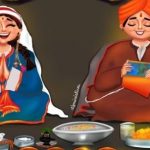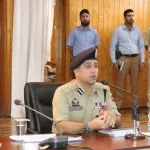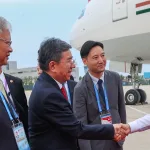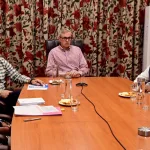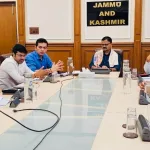Srinagar, Feb 25: Jammu and Kashmir Chief Minister Omar Abdullah on Tuesday said that the abrogation of Ar-ticle 370 has led to a decline in separatist activities in Jammu and Kashmir.
In an interview with a Television Channel, Omar said that while the situation has changed, challenges still remain.
On being asked about the change in J&K after 2019, Omar said that today’s Jammu and Kashmir is not that we have seen before 2019.” He added that be-fore the revocation of Article 370, J&K had its own powers as a separate state, unlike the current Union Territory status. “Today, we are not a state; we are a Union Territory, and there is a significant difference between the two,” he fur-ther said.
He said that the transition from a state to a UT has been challenging, making it difficult to explain the shift to people.
Replying to a query on the Government’s progress so far, Omar said that there will be an upcoming assembly session where the past four months’ progress will be discussed.
Omar said that Article 370 was scrapped without taking the people of Jammu and Kashmir on board and they had no role to play in it.
He added that the provision was not time-bound, asking, “What was the prom-ise made to the people?” He further said, “A permanent provision could not be inserted into the Constitution for a region whose permanent status was yet to be determined. Over the time, we agreed that the accession was permanent and needed no ratification. But the framework that guaranteed this accession also needed to be permanent.”
He admitted that the revocation of Article 370 led to a decline in separatist ac-tivities. “No one can deny that separatism has declined in J&K. No one had imagined that Mirwaiz Umar Farooq would be provided security by the CRPF,” he said. He acknowledged that while separatism has weakened, challenges remain.
He added that the restoration of statehood is not a question of “if” but “when.” “I am not one of those who use the word ‘if’ when talking about restoring statehood,” he said. He further said, “There is no ‘if’—it will happen, and I hope soon.” He pointed out that Prime Minister Narendra Modi and other leaders have repeatedly assured that J&K will regain statehood.
Omar said that a Union Territory with an assembly is an ineffective system. “This system is cheating the people. It is worse than the worst system we have,” he added.
He further said that there should not be a UT with an assembly, but either be a full state or a UT without an assembly like Ladakh.”
He questioned why such a dual power system does not exist elsewhere in In-dia. “If dual power was so good, why does it not exist anywhere else in the country?” he added.
Omar said that his government’s priority is to bridge the gap between people and the administration. “We had to make a coalition with the people, and we were able to achieve that to a great extent,” he further said.
He acknowledged that their tenure so far has been focused on managing in-herited projects. “In four months, we haven’t had a chance for execution. Right now, we are only implementing what we inherited. Let’s present our first budget and move ahead,” he added.
He also said that while the electricity supply this winter was better than last year, it was still not perfect. “We will continue to improve the electricity situation moving for-ward,” he added.
He further said that Jammu and Kashmir has vast potential in tourism, hydro-electric power, agriculture, and lithium recovery in Reasi. “Jammu has vast po-tential in adventure tourism, pilgrimage tourism, and horticulture. We must create job opportunities for our youth, who are talented and knowledgeable,” he added.
Expressing concern over the resurgence of terrorism in Jammu province, Omar said that it is unfortunate that terrorism has revived in Jammu. “We have wiped it out, and it must be eliminated again,” he said, blaming Pakistan for continued interference in J&K.
He further said that maintaining good relations with the Centre is essential for J&K’s progress. “There is no adversarial relationship; we work together for the benefit of Jammu and Kashmir. By working with the Centre, the intent is to make the region progress, and that is something we aim to execute.”
He said that the INDI alliance needs to clarify its approach to assembly elec-tions. “If the alliance is only for parliamentary elections, then it means there is no alliance for assembly elections. If we are together, we should contest as-sembly polls collectively. Fighting separately has hurt the bloc, as seen in Delhi and Haryana.”
Omar urged people to embrace the changes happening in J&K. “We are headed in the right direction, and the growth we have achieved in the past few years proves that,” he added.


